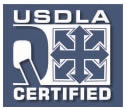EDUC 661 Advanced Trends and Issues in PK-5 Mathematics Teaching
If you’re feeling anxious about teaching math, this course will help you develop a math mindset as a teacher and share this enthusiasm and confidence with your students.
You Will Learn
- instructional strategies to implement the Common Core math standards
- math interventions to help students who struggle to learn mathematics
- instructional technology and apps that will have a positive impact on learning.
Course Description
Research, issues and problems related to teaching PK-5 mathematics, including problem-based learning, curricular decision-making, diagnosis and remediation, and building assessment into instruction.
Who Should Enroll
- Elementary educators
- Title I math teachers
- Special education teachers
- Math coaches
- Mathematics resource teachers
- Math interventionists
You may enroll in this course to meet your goals for
- professional development
- continuing education
- license renewal
- graduate credits
- transfer to another university.
This is one of the required courses for individuals pursuing the Math Specialist Certificate.
e-Textbooks
E-textbooks will be provided when you login to the course. You may open the e-book to read online from your laptop or desktop. The e-textbook software is compatible with an iPad, Kindle Fire or fully internet-capable device. It is not compatible with a Kindle Reader.
Van de Walle, J., Lovin, L.A. (2014). Teaching Student-Centered Mathematics: Developmentally Appropriate Instruction for Grades Pre-K-2 (Volume I) 2nd Edition. Pearson.ISBN-13: 978-0132824828
Van de Walle, J., Karp, K., Lovin, L., and Bay-Williams, J. (2014). Teaching Student-Centered Mathematics: Developmentally Appropriate Instruction for Grades 3-5 (Volume II) 2nd Edition. Pearson. ISBN-13: 9780132824873
If you prefer to read a hard copy of the textbook, instead of reading via your computer or tablet, you may purchase the book from amazon.com or the publisher. Note the ISBN number and edition.
Learning Outcomes
Upon completion of this course, students will be able to:
- Analyze recent research for improving PK-5 mathematics instruction.
- Design effective standards-based classroom activities for PK-5 students and reflect on student outcomes.
- Analyze the impact of standardized testing on math instruction and develop formative assessments to assess mastery of the same essential math concepts in different ways.
- Apply instructional strategies and appropriate practices for analyzing student work, error patterns and modify lessons based on assessment information.
- Differentiate math instruction to promote mathematics learning among struggling students of a wide range of academic diversity including culturally and linguistically diverse learners and students with exceptionalities.
- Modify lessons infusing a synthesis between problem solving, communication and real-life connections.
- Design math lessons connecting concepts within mathematics to related science, engineering, technology (STEM), and other topics by infusing problem-solving strategies.
- Apply technology tools in classroom instruction and connect math activities to everyday experiences.
- Communicate the themes, topics, and issues involved in teaching PK-5 mathematics to appropriate audiences.
- Synthesize current research, contemporary theories, teaching strategies, and instructional technology to teach PK-5 mathematics.
Alignment with Teaching Standards
Course objectives are aligned with the following:
- Wisconsin Teaching Standards (WI DPI) 1, 3, 7, 8, 9
- Eight Standards for Mathematical Practice in the Common Core State Standards (CCSSO, 2010)
- Five Strands of Mathematical Proficiency from Adding It Up (NCTM, 2001)
- National Council Teacher of Mathematics Process Standards (2000)
- International Society for Technology in Education, National Educational Technology Standards for Teachers, (NETS-T) V
No travel to campus required.
You may participate from your home or work computer during hours that are flexible and convenient for your work and family schedule and responsibilities.
The class is highly interactive with a significant discussion component.
All discussion postings, projects, and assignments will be submitted via the course discussion board and Dropbox.
Activities are conducted according to a schedule with specific due dates each week; there are no required "live" chat sessions. This is not a self-paced class.
SIGN UP SOON!
Register online
The School of Education reserves the right to cancel classes that do not meet minimum enrollment requirements.
For More Information
Request Information Online
Contact Us: School of Education
Online Professional Development
University of Wisconsin - Stout Menomonie, WI 54751
Phone: 715-232-2693
Browse Courses
e-Newsletter


